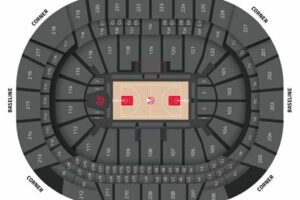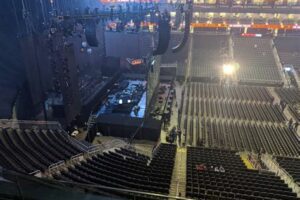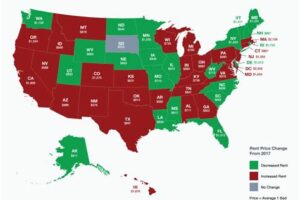Table of Contents
George Orwell’s Animal Farm is a satirical allegory that portrays the dangers of a totalitarian state through the rise and fall of a group of farm animals.
George Orwell’s Animal Farm is a political allegory that presents a powerful critique of totalitarianism. Through the story of a group of farm animals who overthrow their human farmer and establish their own society, Orwell portrays the rise and fall of a totalitarian state. The novel offers a chilling portrayal of the ways in which power corrupts, and it highlights the dangers of blindly following leaders who claim to have your best interests at heart. From the very beginning of the novel, it is clear that something is amiss on the farm. The pigs, who quickly establish themselves as leaders, begin to manipulate the other animals through propaganda and intimidation. As the story unfolds, we see how the pigs use fear and violence to maintain their grip on power, and how they gradually become indistinguishable from the humans they once overthrew.
George Orwell’s Animal Farm is a political allegory that portrays the rise of a totalitarian state. Written in 1945, the novel reflects the events leading up to the Russian Revolution of 1917 and its aftermath. It is an indictment of the Soviet Union under Joseph Stalin and his regime, which had become increasingly oppressive and repressive. The novel depicts how power corrupts those who hold it and how a revolution can devolve into tyranny.
The Use of Propaganda
The pigs, who are the leaders of the animal revolution, use propaganda to manipulate the other animals into thinking that they are working for their own good. They use slogans like All animals are equal and Four legs good, two legs bad to rally the animals behind them. The propaganda is designed to make the animals believe that the pigs are their friends and that they have their best interests at heart. In reality, the pigs are only interested in consolidating their power and maintaining their position at the top of the hierarchy.
The Cult of Personality
The pigs create a cult of personality around themselves, especially around Napoleon, who becomes the de facto leader of Animal Farm. They use propaganda to create an image of Napoleon as a wise and benevolent leader who is always working for the good of the animals. The animals are taught to revere him and to see him as their savior. This cult of personality serves to consolidate the pigs’ power and to legitimize their rule.
The Suppression of Dissent
Any animal that questions the pigs’ authority or speaks out against them is labeled a traitor and is punished severely. The pigs use violence and intimidation to suppress dissent and to maintain their grip on power. They create a secret police force called the Dogs that is used to silence any opposition. The animals are taught to fear the Dogs and to stay in line.
The Control of Information
The pigs control all the information that the other animals receive. They manipulate the news and use propaganda to create a false narrative about what is happening on the farm. They censor any information that is critical of their rule and present a sanitized version of reality that is designed to keep the animals in line. By controlling the information, the pigs are able to control the thoughts and actions of the other animals.
The Use of Fear
The pigs use fear to keep the other animals in check. They create a climate of fear by using violence and intimidation to suppress dissent. They also use the threat of external enemies to unite the animals behind them. The animals are taught to see themselves as under siege and to believe that the only way to survive is to support the pigs.
The Concentration of Power
The pigs concentrate power in their own hands and create a hierarchy that ensures their dominance. They create a ruling class that is exempt from the rules that apply to the other animals. They also create a system of rewards and punishments that reinforces their control. The pigs are able to maintain their power by ensuring that the other animals are dependent on them for food and shelter.
The Use of Force
The pigs use force to maintain their rule. They create a secret police force that is used to suppress dissent and to punish those who disobey. They also create a military force that is used to defend the farm from external enemies. The pigs are willing to use violence and coercion to maintain their grip on power.
The Exploitation of the Working Class
The pigs exploit the other animals for their own benefit. They take the fruits of the animals’ labor and use them to enrich themselves. They create a system of inequality in which the working class is exploited for the benefit of the ruling class. The pigs live in luxury while the other animals struggle to survive.
The Betrayal of the Revolution
The novel depicts how the revolution is betrayed by the pigs, who become the new oppressors. The pigs use the revolution to seize power and then use that power to maintain their rule. They betray the ideals of the revolution and create a system of tyranny in which the other animals are enslaved. The novel serves as a warning about the dangers of revolution and the need to be vigilant against those who would use it for their own purposes.
Conclusion
Animal Farm is a powerful indictment of totalitarianism and a warning about the dangers of giving too much power to any one person or group. The novel depicts how a revolution can be hijacked by those who seek to use it for their own purposes. The pigs are shown to be corrupt and cruel, and their rule is shown to be oppressive and repressive. The novel serves as a reminder of the importance of freedom, equality, and justice, and the need to remain vigilant against those who would seek to take them away.
Animal Farm is a novel that brilliantly illustrates how a totalitarian state functions. George Orwell, the author of Animal Farm, uses the allegory of animals taking over a farm to portray the rise of communism in Soviet Russia. The book depicts how the ideology that was meant to liberate people from oppression turned into an oppressive regime. In this essay, I will explore how Animal Farm represents a totalitarian state by analyzing the rise of Napoleon and Stalin, propaganda and manipulation of the masses, the cult of personality, surveillance and control of the citizens, the use of violence and fear to maintain power, the purges and betrayal of the revolutionary ideals, the role of the secret police and the guard dogs, the planned economy and the mismanagement of resources, and the legacy of totalitarianism and the lessons of history.
The Rise of Napoleon and Stalin
In Animal Farm, Napoleon is a pig who rises to power after the overthrow of Mr. Jones, the human owner of the farm. Similarly, Stalin rose to power after the Bolshevik Revolution in 1917. Both Napoleon and Stalin were cunning and ruthless leaders who used any means necessary to gain and maintain power. They both eliminated their rivals and established a cult of personality around themselves.
Propaganda and Manipulation of the Masses
Napoleon and his fellow pigs manipulate the other animals on the farm by controlling the information they receive. They use slogans such as Four legs good, two legs bad to simplify complex ideas and make them easy to remember. Similarly, Stalin and his propaganda machine controlled the media and spread propaganda to manipulate the masses. They used slogans such as Workers of the world, unite! to create a sense of belonging among the people.
The Cult of Personality
Napoleon and Stalin both created a cult of personality around themselves. They were depicted as larger-than-life figures who were indispensable to the success of the revolution. They were portrayed as saviors who could do no wrong. This cult of personality allowed them to gain the unwavering loyalty of their followers.
Surveillance and Control of the Citizens
In Animal Farm, Napoleon and his fellow pigs use propaganda and surveillance to control the other animals on the farm. They employ a secret police force made up of guard dogs who intimidate and attack any animal that questions their authority. Similarly, Stalin and his secret police force, the NKVD, used surveillance and violence to maintain control over the Soviet Union. Citizens who spoke out against the regime were persecuted and often sent to labor camps.
The Use of Violence and Fear to Maintain Power
Napoleon and his fellow pigs use violence and fear to maintain power on the farm. They execute any animal that is perceived as disloyal or a threat to their authority. Similarly, Stalin and his regime used violence and fear to maintain power in the Soviet Union. The purges under Stalin’s rule resulted in the deaths of millions of people who were perceived as enemies of the state.
The Purges and the Betrayal of the Revolutionary Ideals
In Animal Farm, the pigs betray the revolutionary ideals of the other animals by becoming just as oppressive as Mr. Jones was. Similarly, Stalin’s regime betrayed the revolutionary ideals of communism by becoming an oppressive dictatorship. The purges under Stalin’s rule targeted many of the original revolutionaries who had fought for a better society.
The Role of the Secret Police and the Guard Dogs
The secret police and guard dogs in Animal Farm represent the NKVD, the secret police force under Stalin’s rule. These organizations were used to control and intimidate the citizens and maintain the regime’s power. The use of secret police and guard dogs is a common feature in totalitarian regimes, as it allows the government to control and monitor the citizens more effectively.
The Planned Economy and the Mismanagement of Resources
In Animal Farm, the pigs implement a planned economy where resources are distributed according to the needs of the animals. However, as the pigs become more corrupt, they begin to hoard resources for themselves and mismanage the economy. Similarly, the Soviet Union implemented a planned economy that was meant to provide for the needs of all citizens. However, mismanagement and corruption led to widespread shortages and economic stagnation.
The Legacy of Totalitarianism and the Lessons of History
The legacy of totalitarianism is one of oppression, violence, and fear. Animal Farm serves as a warning against the dangers of totalitarianism and the importance of remaining vigilant against the abuse of power. The lesson of history is that totalitarian regimes always end in failure, whether through revolution or collapse. It is up to the citizens to hold their leaders accountable and ensure that their rights and freedoms are protected.
In conclusion, Animal Farm represents a totalitarian state by portraying the rise of Napoleon and Stalin, propaganda and manipulation of the masses, the cult of personality, surveillance and control of the citizens, the use of violence and fear to maintain power, the purges and betrayal of the revolutionary ideals, the role of the secret police and the guard dogs, the planned economy and the mismanagement of resources, and the legacy of totalitarianism and the lessons of history. The novel is a powerful reminder of the dangers of totalitarianism and the importance of preserving democracy and freedom.
Animal Farm by George Orwell is a classic allegorical novel that depicts the rise and fall of a totalitarian state. The story takes place on a farm where the animals overthrow their human oppressors and establish their own government. However, as time passes, the pigs, who are the leaders of the new regime, become corrupt and begin to resemble the very humans they had overthrown. Here’s how Animal Farm represents a totalitarian state:
1. Control of Information
In a totalitarian state, the ruling party controls all forms of information and propaganda to maintain their power. In Animal Farm, the pigs control what the other animals read, hear, and see. They rewrite history books to glorify themselves and demonize their enemies. They also create slogans such as four legs good, two legs bad to manipulate the animals’ beliefs.
2. Use of Fear and Violence
A totalitarian state uses fear and violence to maintain its power. In Animal Farm, the pigs use their private army of dogs to intimidate and silence any opposition. They also stage public trials and executions to instill fear in the other animals.
3. Cult of Personality
In a totalitarian state, the leader is elevated to a god-like status and their image is everywhere. In Animal Farm, the pig Napoleon creates a cult of personality around himself. He commissions a painting of himself and changes the name of the farm to Napoleon’s Animal Farm. He also declares himself president for life.
4. Suppression of Dissent
In a totalitarian state, any dissent or criticism of the regime is quickly suppressed. In Animal Farm, the pigs use their propaganda machine to label any animal who opposes them as a traitor or a spy. They also eliminate any potential rivals through violence or exile.
5. Economic Control
A totalitarian state controls the economy to maintain its power. In Animal Farm, the pigs control all aspects of the economy, including the distribution of food and resources. They also manipulate the other animals into working harder for less reward.
Point of View
The use of animals as characters in Animal Farm allows Orwell to comment on the nature of power and totalitarianism in a way that is both accessible and entertaining. By using animals instead of humans, Orwell can critique the Soviet Union and its leaders without being censored or punished. The story also highlights the dangers of blindly following authority and the importance of critical thinking and individualism.
The tone of the novel is satirical and critical. Orwell uses humor and irony to expose the flaws of totalitarianism and the hypocrisy of those in power. The novel is a warning against the dangers of tyranny and the need for vigilance in defending democracy and freedom.
In conclusion, Animal Farm represents a totalitarian state through its depiction of information control, fear and violence, cult of personality, suppression of dissent, and economic control. Its point of view, conveyed through the use of animals as characters, provides a powerful critique of authoritarianism and a call to defend individual freedoms.
Thank you for taking the time to read this article on how Animal Farm represents a totalitarian state. Through the use of allegory, George Orwell creates a powerful commentary on the dangers of totalitarianism and the corrupting influence of power. By drawing parallels between the characters and events in the novel and those in Soviet history, Orwell shows us how easily a revolution can be corrupted and how quickly a society can devolve into tyranny.One of the main themes of Animal Farm is the idea that power corrupts. Initially, the animals overthrow their human oppressors and establish a socialist utopia, where all animals are equal and work together for the common good. However, as the pigs consolidate their power, they become increasingly authoritarian and oppressive. They rewrite history to suit their own purposes, suppress dissent, and use violence and intimidation to maintain their grip on power. In this way, Orwell shows us how even well-intentioned revolutions can be co-opted by those seeking to aggrandize themselves.Another important aspect of Animal Farm is the way in which it critiques the Soviet Union under Stalin. By portraying the pigs as being just as bad as, if not worse than, the humans they overthrew, Orwell is making a pointed criticism of the Soviet regime. He shows us how the Communist Party became corrupt and authoritarian, with Stalin at its head, and how the ideals of socialism were betrayed in the pursuit of power. This is a cautionary tale about the dangers of unchecked authority and the need for transparency and accountability in government.In conclusion, Animal Farm is a powerful allegory about totalitarianism and the corrupting influence of power. Through his portrayal of the animals and their struggles, Orwell shows us how easily revolutions can be betrayed and how quickly a society can devolve into tyranny. It is a warning about the dangers of authoritarianism and the need to remain vigilant against those who seek to abuse their power. Thank you for reading, and I hope this article has given you some food for thought..
People Also Ask About How Does Animal Farm Represent A Totalitarian State
Animal Farm is a political allegory that represents the rise of totalitarianism in the Soviet Union. It portrays the events of the Russian Revolution and the early years of the Soviet Union through the eyes of talking animals who overthrow their human owner and establish their own government. Here are some of the questions people ask about how Animal Farm represents a totalitarian state:
-
What is a totalitarian state?
A totalitarian state is a form of government where the ruling party or individual has complete control over all aspects of society, including the economy, media, education, and culture. The citizens have no freedom of speech, assembly, or religion, and are often subjected to propaganda and surveillance.
-
How does Animal Farm represent a totalitarian state?
Animal Farm represents a totalitarian state in several ways. Firstly, the pigs, who take over the running of the farm after the rebellion, establish themselves as the ruling class and use propaganda, intimidation, and violence to maintain their power. Secondly, they rewrite history and manipulate language to suit their needs, such as changing the commandments to justify their actions. Thirdly, they use fear and scapegoating to maintain control, such as blaming Snowball for all their problems. Lastly, they create a cult of personality around their leader, Napoleon, who is portrayed as infallible and above criticism.
-
What are the dangers of a totalitarian state?
The dangers of a totalitarian state are many. Firstly, it suppresses individual freedoms and creativity, leading to a lack of innovation and progress. Secondly, it creates a cult of personality around the leader, leading to blind obedience and the suppression of dissent. Thirdly, it can lead to mass atrocities and genocide, as seen in Nazi Germany and Stalinist Russia. Lastly, it can create a culture of fear and suspicion, leading to a breakdown of trust and community.
-
What is the message of Animal Farm?
The message of Animal Farm is that power corrupts, and absolute power corrupts absolutely. It warns against the dangers of totalitarianism and the need for checks and balances in any system of government. It also highlights the importance of education and critical thinking in maintaining a free society.
-
How does Animal Farm relate to real-life events?
Animal Farm is based on the events of the Russian Revolution and the early years of the Soviet Union under Joseph Stalin. It reflects the rise of totalitarianism and the suppression of dissent and individual freedom. It also relates to other real-life events, such as the rise of Nazi Germany and the current political situation in countries like North Korea and China.
In conclusion, Animal Farm represents a totalitarian state in a powerful and thought-provoking way. It highlights the dangers of unchecked power and the need for vigilance and resistance in the face of tyranny.






